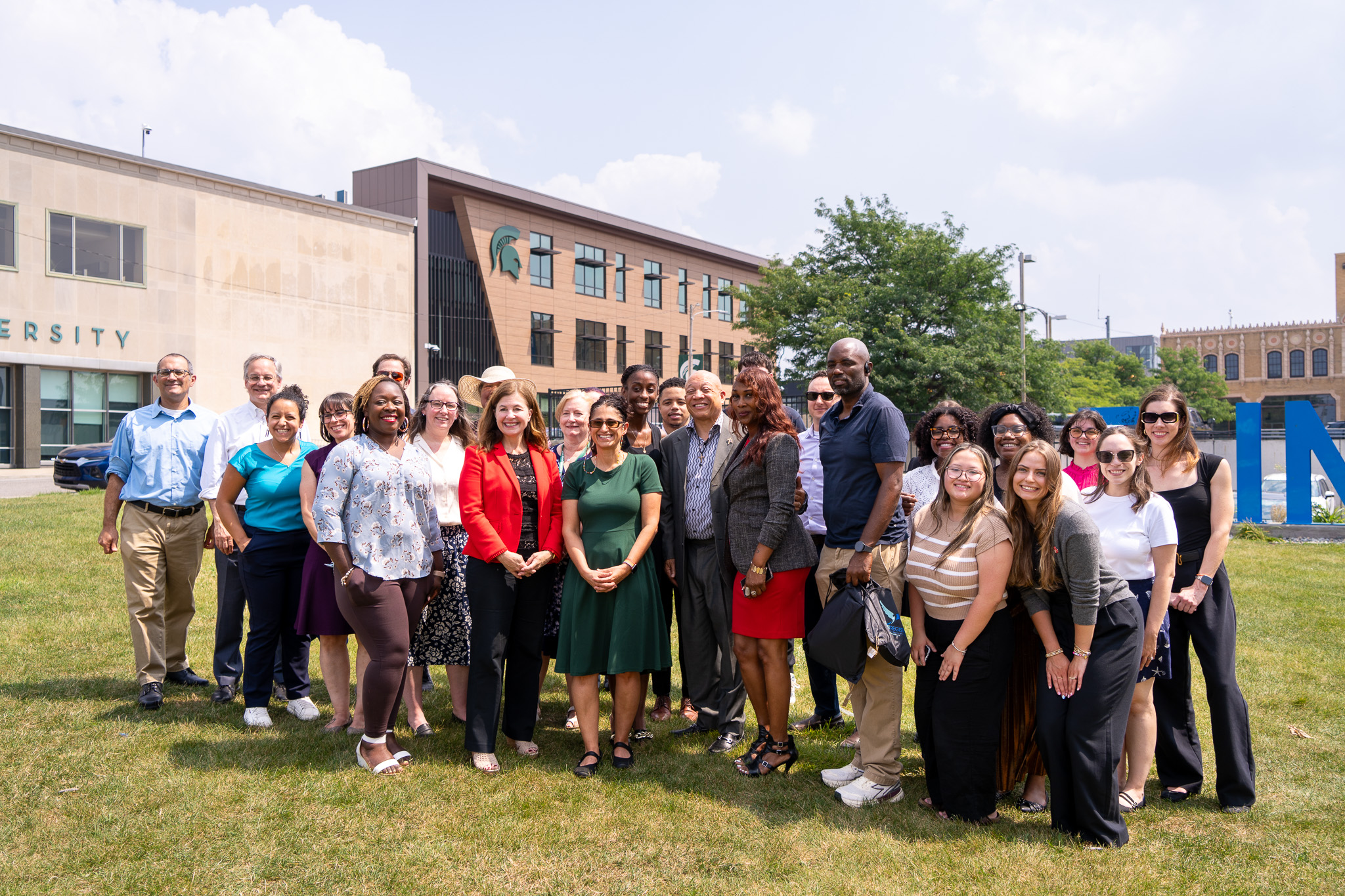The assistant professor has the resources at Michigan State University to precisely target cancer cells with diagnostics and therapies using radioisotopes produced by what is designed to be the world's most powerful heavy-ion accelerator.
She works in the highly collaborative Institute for Quantitative Health Science and Engineering, or IQ, and the isotopes come from the Facility for Rare Isotope Beams, a U.S. Department of Energy Office of Science user facility located in the heart of campus.
When considering where to pursue her career, she knew MSU provided the perfect environment.
“I wanted to work in a place where people work together,” de Aguiar Ferreira says. “We learn better together. We teach better together. We discover better together.”
De Aguiar Ferreira’s commitment to community took root while she was growing up in Brazil, where her love of science also bloomed.
As a child, de Aguiar Ferreira played games with her pharmacist grandfather designed to stoke her curiosity. In town, he was also known as “the alchemist” for his ability to diagnose and treat his neighbors’ illnesses.
He died while she was in graduate school, but in his loss, she also found validation. Her grandfather, who helped inspire her career, had colon cancer, which was the focus of de Aguiar Ferreira’s research project.
“That was a sign to me that I was doing the right thing with my life,” she says.
Now in the colleges of Human Medicine and Engineering at MSU, she’s working with some of the top minds in her field and attracting some of the most talented students in the world to better treat cancer and improve lives.
“It makes me feel like I’m part of something bigger.”
Get the latest updates on our programs and initiatives.


